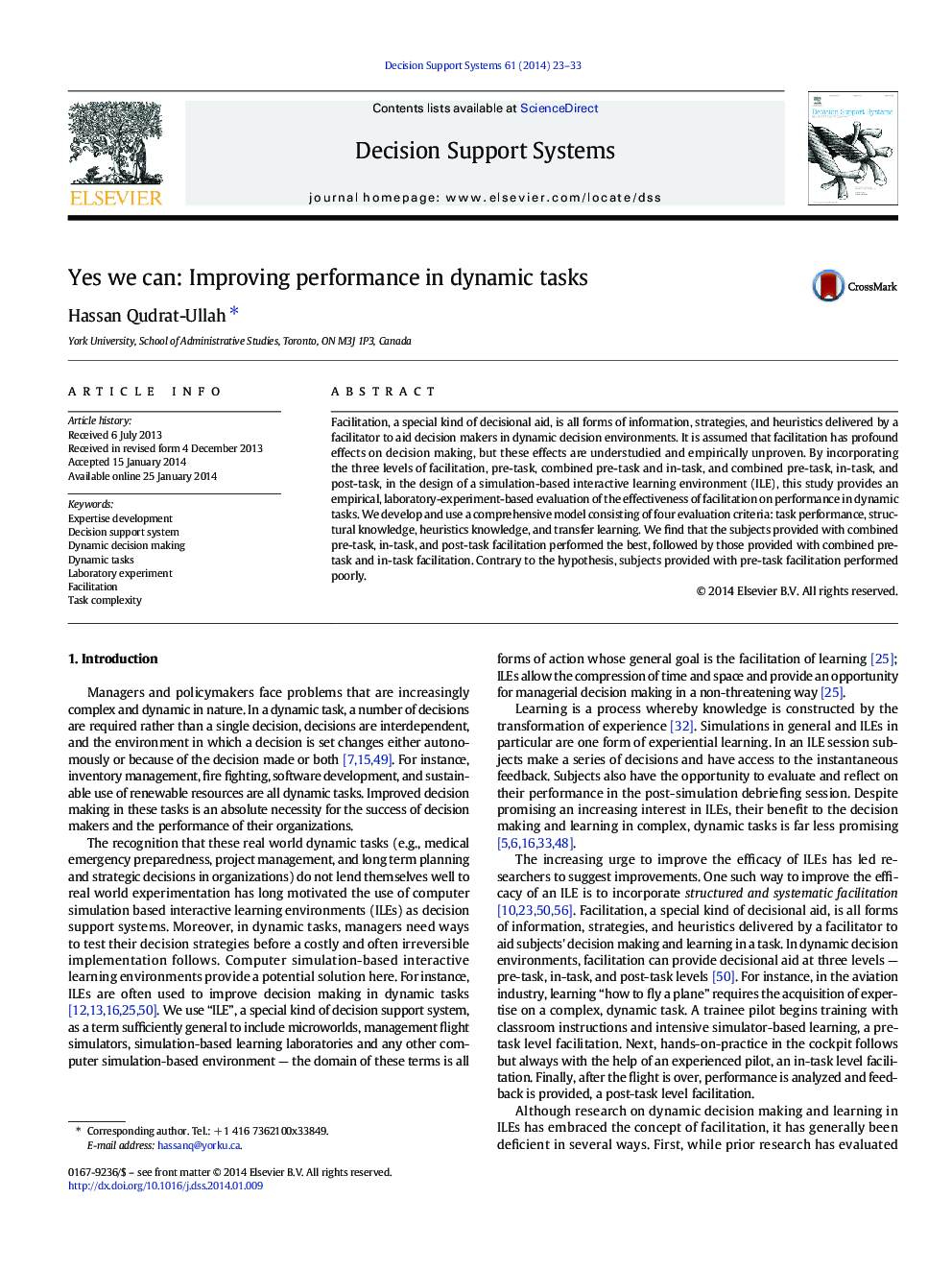| Article ID | Journal | Published Year | Pages | File Type |
|---|---|---|---|---|
| 553451 | Decision Support Systems | 2014 | 11 Pages |
•Provides evaluation of the effectiveness of facilitation on performance in dynamic tasks•Develops and uses a model consisting of four evaluation criteria•Combined pre-task, in-task, and post-task facilitation performed the best.•Subjects provided with pre-task facilitation performed poorly.•Contributes to the design of simulation-based interactive learning environments
Facilitation, a special kind of decisional aid, is all forms of information, strategies, and heuristics delivered by a facilitator to aid decision makers in dynamic decision environments. It is assumed that facilitation has profound effects on decision making, but these effects are understudied and empirically unproven. By incorporating the three levels of facilitation, pre-task, combined pre-task and in-task, and combined pre-task, in-task, and post-task, in the design of a simulation-based interactive learning environment (ILE), this study provides an empirical, laboratory-experiment-based evaluation of the effectiveness of facilitation on performance in dynamic tasks. We develop and use a comprehensive model consisting of four evaluation criteria: task performance, structural knowledge, heuristics knowledge, and transfer learning. We find that the subjects provided with combined pre-task, in-task, and post-task facilitation performed the best, followed by those provided with combined pre-task and in-task facilitation. Contrary to the hypothesis, subjects provided with pre-task facilitation performed poorly.
Graphical abstractImproving performance in dynamic decision environments.Figure optionsDownload full-size imageDownload as PowerPoint slide
